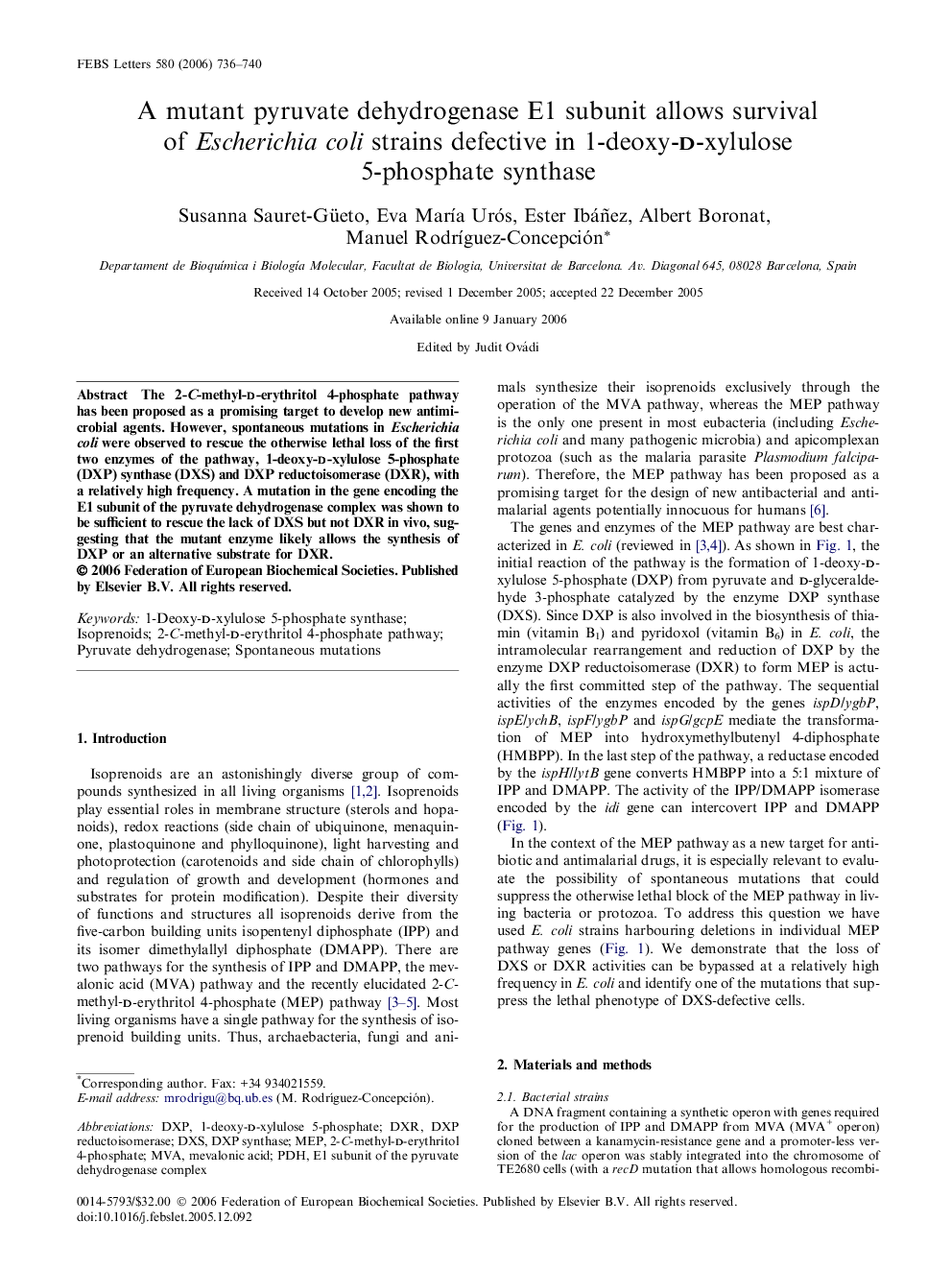| Article ID | Journal | Published Year | Pages | File Type |
|---|---|---|---|---|
| 2053041 | FEBS Letters | 2006 | 5 Pages |
Abstract
The 2-C-methyl-d-erythritol 4-phosphate pathway has been proposed as a promising target to develop new antimicrobial agents. However, spontaneous mutations in Escherichia coli were observed to rescue the otherwise lethal loss of the first two enzymes of the pathway, 1-deoxy-d-xylulose 5-phosphate (DXP) synthase (DXS) and DXP reductoisomerase (DXR), with a relatively high frequency. A mutation in the gene encoding the E1 subunit of the pyruvate dehydrogenase complex was shown to be sufficient to rescue the lack of DXS but not DXR in vivo, suggesting that the mutant enzyme likely allows the synthesis of DXP or an alternative substrate for DXR.
Keywords
Related Topics
Life Sciences
Agricultural and Biological Sciences
Plant Science
Authors
Susanna Sauret-Güeto, Eva María Urós, Ester Ibáñez, Albert Boronat, Manuel Rodríguez-Concepción,
